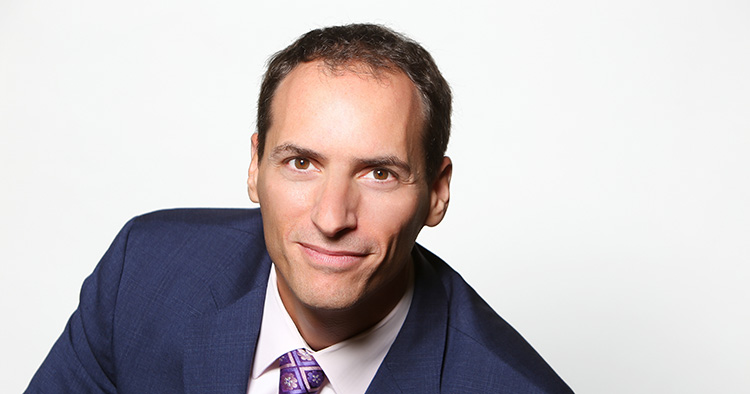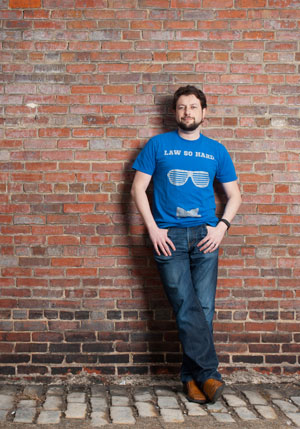LawyerSmack is reinventing the way lawyers communicate

Ari Kaplan
Ari Kaplan speaks with Keith Lee, a lawyer and author in Birmingham, Alabama, who has been blogging for eight years and recently created LawyerSmack, a private community for attorneys interested in discussing practice-related issues with their peers in real time.
This Q&A has been condensed.
Ari Kaplan: Tell us about the genesis of LawyerSmack.
Keith Lee: As my blog, Associate’s Mind, became more popular, the one component that I really enjoyed was communicating with people, and eventually that expanded to social media. What I wanted, however, was a place for lawyers to get together and discuss their careers openly, freely, and without fear of repercussions. That led to LawyerSmack, which I started in 2016. Once you become a member, most of the communication takes place on Slack, which is an internal messaging tool for teams that has emerged as one of the premier online community platforms.
Ari Kaplan: How does LawyerSmack work?
Keith Lee: Once someone registers and pays the $99 annual fee, I personally review their application to make sure they have a JD, or the equivalent if they are based outside of the U.S., prior to approving their membership. I look at their background and try and place them in the correct channels based upon their practice areas and geographic location. From there, it is up to them.
Ari Kaplan: What are some of the most active channels within your community?
Keith Lee: The solo and small-firm channel is very active. The appeal of the in-house channel surprised me, but if those lawyers are in small to medium-size companies and are the only attorneys in their departments, they have the same challenges as solo practitioners in that they need to bounce ideas off of other professionals. The newbie channel and the First Amendment channel are also very popular. People also love to talk about sports, politics, and parenting, but each topic has its own discussion area. Unlike the old traditional listserv format where everyone has to talk business all the time, LawyerSmack has many channels. If you want to talk about appellate work, you go into the appeals area, but if you don’t want that information, you will never see it.

Keith Lee. ABA Journal file photo by David Mudd.
Ari Kaplan: How do you decide which channels to create?
Keith Lee: I’m pretty liberal with that so as the community has grown, it has become more self-directed. Every now and then, I’ll look at the list and see new channels that I didn’t know existed. I don’t allow anything obviously offensive, out of bounds, crazy, violent, or racist. There are, however, channels that are labeled “Not Safe for Work,” such as “After Dark.” This is where single lawyers discuss their Tinder experiences. That’s definitely quarantined into its own space and everyone knows not to go in there unless you expect some pretty frank conversation about dating.
Ari Kaplan: What is the expectation of privacy for your users?
Keith Lee: No one can be in there unless I approve them, and everyone’s vetted as an attorney, so it’s definitely private. People feel like it is a safe space where they can have conversations about their practices, which I certainly think is one of the reasons why it has become so popular. That said, I let everyone know that it’s the internet so nothing is really private.
Ari Kaplan: How are you monitoring the conversations?
Keith Lee: I check throughout the day, but I am very proud of the LawyerSmack culture. It’s irreverent, but professional. People know where the lines are. It also helps that some of the moderators of Reddit are members of LawyerSmack and keep tabs on the community as well. Even if I’m not there as something is going on, there are usually people who are very experienced in moderating to keep the conversations on track.
Ari Kaplan: In addition to creating a safe space, what else is driving the popularity of LawyerSmack?
Keith Lee: A lot of people are just burnt out from the vitriol and trolling on Twitter, Facebook, and other sites. It is often overwhelming to be online due to the constant back-and-forth, almost battling. You can’t just have a regular conversation without people interjecting and things going off-track or someone accusing you of something. It is exhausting. When you go into LawyerSmack, things are kept within their groups so there is no political discussion anywhere except for the politics channel. Similarly, the dating stuff stays in the dating channel. I think people really enjoy that. And, since people have to pay a fee to be a member and everyone’s a lawyer, there are just enough barriers to entry that the people who are there really want to be there. They have some skin in the game, and they know they need to behave at a certain level or they will be removed.
Ari Kaplan: What are the surprising benefits of LawyerSmack?
Keith Lee: I was really surprised by the number of referrals that the community generates. As people began to develop relationships and trust each other, it became the de facto place for them to refer cases, especially because there are people from across the country and the world. Over the holidays, there was even an impromptu Secret Santa exchange across 19 states and two countries because people had really bonded and developed relationships. Now, we have meet-ups nationwide, including in Atlanta, New York, and Chicago (during the ABA Techshow). We are having one in April in Boston and another in May in San Diego. I’m just one of 190 people. It’s the other 189 who make it an amazing community.
Ari Kaplan: What does the growth of LawyerSmack indicate about the changing nature of communication in the legal profession?
Keith Lee: The legal industry is always behind on technology. Listservs are still a big thing in the profession, yet no one else uses them. Traditional organizations for lawyers are not heeding the needs of their members, particularly, of younger lawyers. The majority of the people on LawyerSmack are definitely under 40. Many are in their late 20s or early 30s, and they want to connect with other lawyers in an on-demand real-time fashion. Last week, one new lawyer popped into the newbie channel with a complete crisis of faith and was considering quitting his job. Then a dozen people all piled in, and there was a lengthy ethical discussion about what it means to offer representation and the duty of a lawyer. This young attorney received amazing real-time feedback in a way that would have been impossible in any other setting. To have created an environment and a culture where members are eager to help one another like that is just incredible for me.
Listen to the complete interview at Reinventing Professionals.
Ari Kaplan regularly interviews leaders in the legal industry and in the broader professional services community to share perspective, highlight transformative change, and introduce new technology at Reinventing Professionals.



